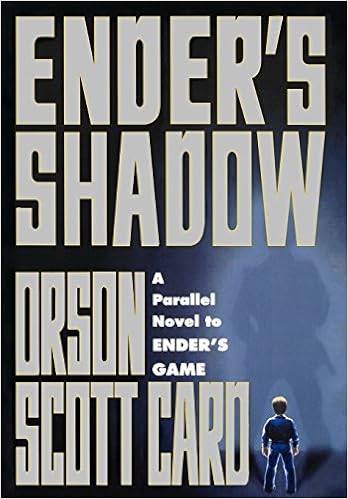Find a Review
Book reviews from Robin, co-host of the Books That Burn podcast. Bookshop links are affiliate links, we may receive a small commission if you purchase from our Bookshop. This content is CAN credentialed, which means you can report instances of harassment, abuse, or other harm on their hotline at (617) 249-4255, or on their website at creatoraccountabilitynetwork.org.
Featured
- Get link
- X
- Other Apps
Ender’s Shadow by Orson Scott Card (The Shadow Series #1)
Ender's Shadow takes a minor (but memorable) character from Ender's Game and fills out his story in a cool way. Unfortunately it did so by ramping up ableism until it is inextricable from the premise, the plot, and two of the main characters.
Review CW for quoting ableist language from the text.
For those of you who still like this series, I understand why, I used to love it too. When I first discovered this series I actually read Ender's Shadow before I read Ender's Game. I read it over and over because I needed something in it. Something that understood how much adult pressure I was under while still a child, how much I felt too old for my skin while being expected to be brilliant. There's a lot of ways that this book speaks to kids who, for whatever reason, are pushed to grow up too quickly. The writing is pretty good and the main character is complex (but the narrative does a bit more "tell" than "show", often explaining very complex thought processes rather than doing something with them). For a long time there's little focus on other kids in the school because, frankly, Bean is mainly interested in just one kid, Ender, only really making a friend with anyone late in the story. By contrast, Ender's Game is full of complex interactions with the other kids because Ender is a very different child from Bean.
Because this takes place during approximately the same time as Ender's Game and spends much of it in the same location with the same people, it had the challenge of not contradicting what came before but also bringing new things to the same story. In that, it does a good job. In between writing Ender's Game and Ender's Shadow, the author seems to have learned that perhaps it wasn't a good idea to fill the pages with a homophobic slur and constantly identify everyone by stereotypes about their countries or nicknames based on being unable to say their real names properly, so instead of constantly saying "Buggers" we have adults gently "reminding" each other that their enemies are more properly called the "Formics", and there's a conversation where a minor character with a bad nickname tells Bean that he doesn't want anyone using that name anymore.
As much as I loved them once, I won't recommend this book or the series ever again. Just as much of the language and plot in Ender's Game was inextricable from homophobia, this book and its ableism can't be separated without the whole thing coming down. The main antagonist to Bean is Achilles, named because of some unspecified deformity in one of his legs. He is driven to destroy anyone who has seen him in a position of weakness. And... yeah that's his motivation. He begins life disabled in an environment where weakness will get you killed, manages to survive, but hates anyone who looks down on him for any reason, including but not limited to thinking of him as subordinate or unable to do something. But even that "disabled villain" trope isn't the main ableism here. We find out about halfway through the book that a certain character only exists because someone was inspired by the existence autistic people, described in the text as "idiot savants", to experiment on embryos to try and unlock savant levels of intelligence (or greater, if possible). When describing the inspiration for the experiment the book repeats a string of harmful (and untrue) stereotypes about autistic people and uses slurs I will not repeat here. While the person describing this experiment is cast as a kind of villain, his theories are understood to be correct and he's only reviled for carrying them out. This is a story about adults exploiting children, built on several kinds of ableism, and as much as I loved this book before I understood how harmful it was, I don't recommend it. If you missed this bit of the sci-fi canon you don't need to go back for it.
CW for ableism, ableist slurs, assault, murder, eugenics, animal cruelty, homophobia, genocide.

- Get link
- X
- Other Apps
Popular Posts
The Rise and Fall of Snow: Why the Hunger Games prequel is good, actually
- Get link
- X
- Other Apps
When Miserable People Get Happy Endings: "Unlikeable" Protagonists in Alexis Hall's Writing
- Get link
- X
- Other Apps
Comments
Post a Comment